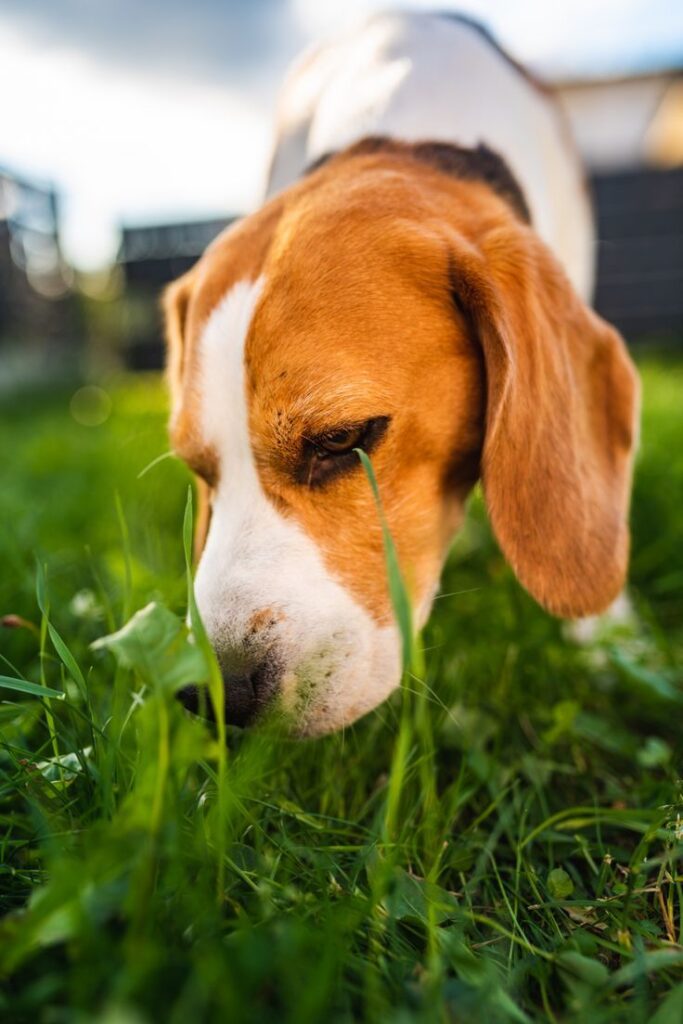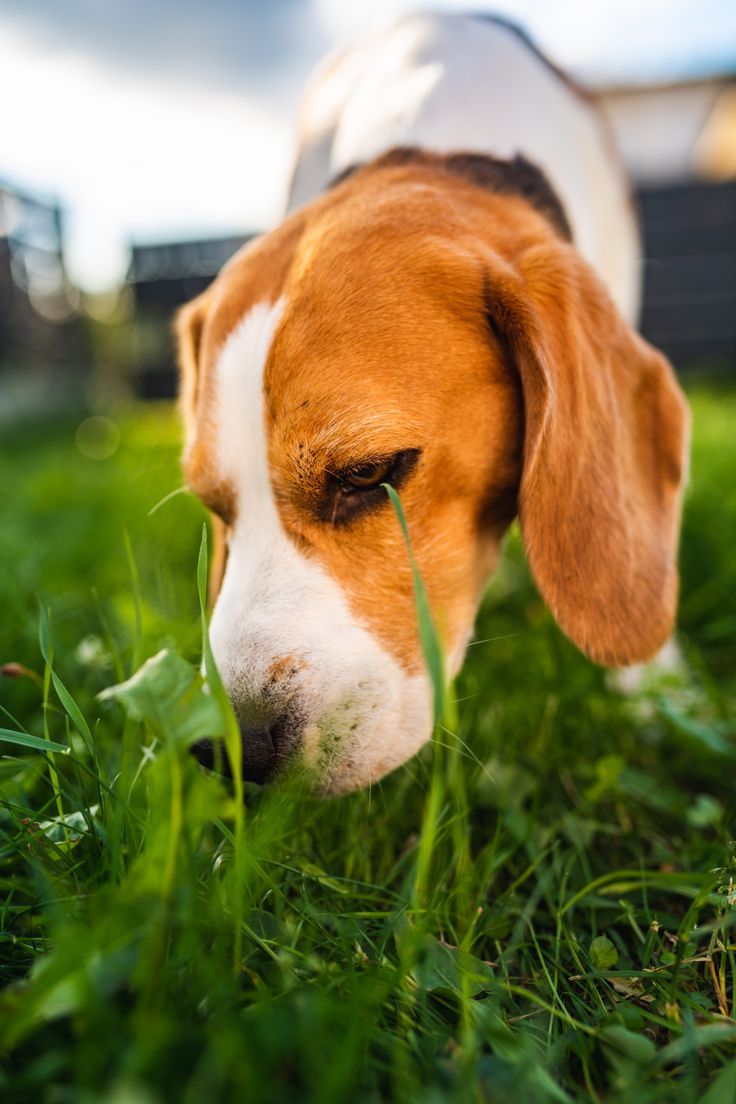Why Do Dogs Eat Grass Discover the real reasons behind your dog’s grass-eating behavior. Learn whether it’s normal, what science says, and when you should worry as a pet owner.

Introduction
Why Do Dogs Eat Grass : If you’re a dog owner, you’ve probably seen your furry friend munching on grass during a walk or in your backyard. It might seem odd or even concerning—especially if it’s followed by vomiting. This common yet puzzling behavior has sparked curiosity and concern for generations. Is it a sign of illness? Are dogs craving something their diet lacks? Or is it just normal dog behavior?
In this comprehensive guide, we’ll explore the most accepted theories behind why dogs eat grass, break down scientific findings, bust common myths, and help you decide when it’s time to call your vet. Whether you’re a first-time pet parent or a seasoned dog lover, this article will equip you with everything you need to know about this peculiar habit.
Table of Contents
| Section | Topic |
|---|---|
| 1 | Introduction |
| 2 | Is Grass-Eating Normal Behavior in Dogs? |
| 3 | Scientific Theories: Why Do Dogs Eat Grass? |
| 4 | Is Grass Eating Linked to Nutritional Deficiency? |
| 5 | Could It Be a Digestive Aid or a Natural Laxative? |
| 6 | Boredom or Behavioral Issues |
| 7 | Grass Eating and Vomiting: What’s the Connection? |
| 8 | Is It Safe for Dogs to Eat Grass? |
| 9 | When Should You Be Concerned? |
| 10 | How to Prevent or Manage Grass Eating |
| 11 | Final Thoughts |
| 12 | FAQs |
1. Is Grass-Eating Normal Behavior in Dogs?
The short answer is yes—most veterinarians and behaviorists agree that eating grass is quite normal in dogs. Studies show that up to 79% of dog owners report their dogs eating grass occasionally. It’s a behavior observed not only in domestic pets but also in wild canines like wolves and coyotes.
Though it may appear strange to us, grass eating is typically harmless and often doesn’t indicate a medical issue. However, understanding the context and frequency of the behavior is essential.
2. Scientific Theories: Why Do Dogs Eat Grass?
Science hasn’t given us one definitive answer, but several theories attempt to explain this behavior:
a. Instinctual Behavior
Some experts believe dogs eat grass due to an ancestral instinct inherited from wild canines. Wolves and foxes consume plants, usually from the stomachs of herbivorous prey. Grass-eating could be a carryover from this evolutionary trait.
b. Gastrointestinal Relief
A widely accepted theory is that dogs eat grass to induce vomiting when they feel sick. The grass irritates the stomach lining, which can trigger a natural purge.
c. Dietary Supplementation
Dogs might be attempting to balance their diet by seeking out missing nutrients like fiber or trace minerals found in plants.
d. Parasite Control
Some researchers hypothesize that wild dogs eat fibrous materials like grass to help expel intestinal parasites. While less relevant in modern domesticated dogs, it may still be an ingrained behavior.
3. Is Grass Eating Linked to Nutritional Deficiency?
This theory holds weight, especially when dogs are fed low-quality kibble or diets lacking in fiber. Grass is rich in insoluble fiber, which aids in digestion and helps move waste through the gut.
If your dog regularly eats grass and also shows signs of poor nutrition (e.g., dull coat, low energy, irregular stools), it’s worth revisiting their diet.
Signs that may support this theory:
- Frequent constipation
- Gas or bloating
- Dull coat or dry skin
- Loss of appetite
Consider switching to high-quality dog food or incorporating fiber-rich vegetables under a vet’s guidance.
4. Could It Be a Digestive Aid or a Natural Laxative?
In some cases, dogs eat grass as a form of self-medication. Grass blades may stimulate the stomach lining, causing vomiting or easing bowel movements. This is especially true if your dog seems uncomfortable or bloated before eating grass and shows relief afterward.
However, it’s important to note that not all dogs vomit after eating grass—only about 25% do, according to some studies.
5. Boredom or Behavioral Issues
If your dog is frequently chewing on grass without other symptoms, it could be a sign of boredom, anxiety, or lack of stimulation.
Signs of behavioral grass eating:
- Happens only during long outdoor stays
- Accompanied by digging or pacing
- More common in high-energy breeds
- Stops when the dog is mentally or physically stimulated
Solutions:
- Increase playtime or walks
- Provide interactive toys
- Teach new tricks to engage their brain
6. Grass Eating and Vomiting: What’s the Connection?
Many dog owners report that their dogs vomit shortly after eating grass. But does grass cause the vomiting—or is the dog already nauseous?
Two main theories:
- Dogs feel sick first and instinctively eat grass to make themselves vomit.
- Grass causes irritation, which leads to vomiting.
The reality may vary by dog. Occasional vomiting isn’t necessarily concerning, but frequent episodes warrant a vet visit.
7. Is It Safe for Dogs to Eat Grass?
In most cases, yes. Grass itself isn’t toxic to dogs. However, the real danger lies in what’s on the grass, such as:
- Pesticides and herbicides
- Fertilizers
- Parasites or fecal matter from other animals
- Mold or fungus
Make sure your dog isn’t eating grass treated with chemicals or contaminated with harmful substances.
8. When Should You Be Concerned?
While occasional grass nibbling is normal, the following signs should raise a red flag:
- Excessive vomiting or diarrhea
- Bloody stool
- Sudden change in appetite
- Lethargy or behavior changes
- Obsessive grass eating
- Signs of poisoning (drooling, tremors, seizures)
If you notice any of these symptoms, consult your vet immediately.
9. How to Prevent or Manage Grass Eating
Here’s how you can manage this behavior if it becomes frequent or problematic:
a. Rule Out Medical Issues
Get your dog checked for gastrointestinal problems, parasites, or dietary deficiencies.
b. Improve Diet
Switch to premium dog food or consult a vet for a balanced homemade meal plan.
c. Offer Safe Alternatives
Provide chewable toys or dog-safe vegetables like carrots, cucumbers, or green beans.
d. Increase Activity
Bored dogs are more likely to exhibit compulsive behaviors. Longer walks, fetch, or training sessions can help.
e. Training and Redirection
Teach a “leave it” command to stop unwanted grass eating. Reward them when they obey.
10. Final Thoughts
Dogs eating grass is one of those quirks that puzzle even the most experienced pet owners. While the behavior is usually harmless, understanding the root cause is crucial for your dog’s health and your peace of mind.
Whether it’s instinctual, dietary, or behavioral, knowing when to ignore it and when to act can help you be a more informed and proactive pet parent. Always observe patterns and consult your vet if anything seems off.
11. FAQs
Q1: Should I stop my dog from eating grass?
If your dog is healthy and the grass is chemical-free, occasional nibbling is fine. But if it’s obsessive or causes vomiting, intervene.
Q2: Can grass eating lead to poisoning?
Yes, if the grass has been treated with pesticides, herbicides, or contains toxic plants or animal waste.
Q3: Do all dogs eat grass?
Not all, but it’s a common behavior across breeds and ages.
Q4: Can I offer my dog greens as a safer alternative?
Yes! Leafy greens like spinach, kale, and lettuce (in moderation) are safer and more nutritious.
Q5: Is grass a substitute for fiber?
It might be. If your dog is seeking fiber, consult a vet about safe, fiber-rich foods to add to their diet.
At BarkMeowHub.com, we’re passionate about pets! Our goal is to help dog and cat lovers make better decisions with trusted, expert-backed content on health, nutrition, training, and lifestyle. Whether you’re a new pet parent or a seasoned pro, we’ve got the tips, guides, and product recommendations you need to keep your furry friend happy and healthy.
Explore more at BarkMeowHub.com – where tails wag and whiskers purr!
